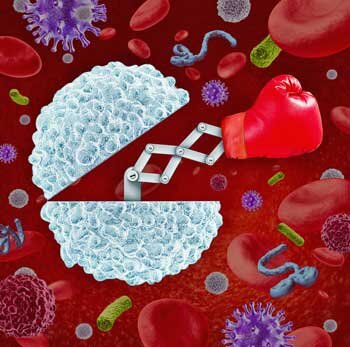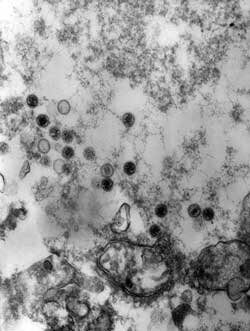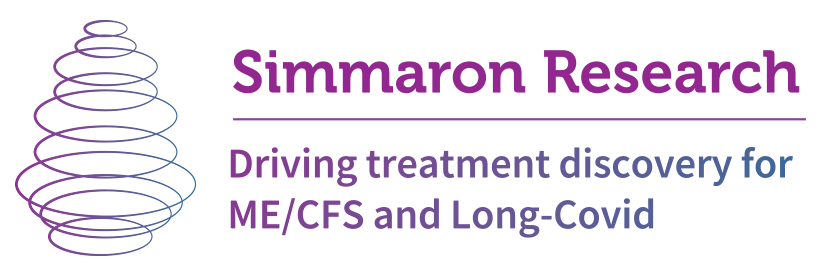The Biggest Chronic Fatigue Syndrome Treatment Trial Begins: Fluge/Mella On Rituximab
Doctor's Fluge and Mella shocked the ME/CFS world with their 2009 case series and the 29-person 2011 study which found that about 2/3rds of ME/CFS patients had a significant and positive response to the chemotherapy and autoimmune drug Rituximab. With some patients achieving near miraculous recoveries, the results from Norway had the ME/CFS world buzzing. As encouraging as the results were, however, they were but a prelude to the big study ahead - the one that will definitively tell us how effective Rituximab is in this disorder.As they begin the study, the doctors appear to be both cautious and optimistic. There's no doubt now that Rituximab doesn't significantly help some people with ME/CFS - the question is how many and how much - and that's what this 152 person, multi-center study will tell usMulti-dimensional in scope, it's actually four studies in one - some of which are almost as exciting as the trial itself - that could tell us much about ME/CFS. This very long study started up in the last quarter of last year - a bit later than expected. As it did I asked the doctors some questions.(Check out the study on the ClinicalTrials.gov database).How is the Rituximab (RituxME) study going? The RituxME study has just started recruiting patients. We plan to include 152 patients, in five centers in Norway. There will be 1:1 randomization between rituximab and placebo.We will give the first two infusions two weeks apart (500 mg/m2, max 1000 mg, or placebo) followed by maintenance infusions 500 mg fixed dose (or placebo), at 3, 6, 9 and 12 months. The placebo solution with saline and some added albumin will look identical to the Rituximab solution. The study will be double-blinded and placebo-controlled.The follow-up will be for 24 months, and the code for intervention will be revealed after the last included patient has been to 24 months visit and the database is locked.
As encouraging as the results were, however, they were but a prelude to the big study ahead - the one that will definitively tell us how effective Rituximab is in this disorder.As they begin the study, the doctors appear to be both cautious and optimistic. There's no doubt now that Rituximab doesn't significantly help some people with ME/CFS - the question is how many and how much - and that's what this 152 person, multi-center study will tell usMulti-dimensional in scope, it's actually four studies in one - some of which are almost as exciting as the trial itself - that could tell us much about ME/CFS. This very long study started up in the last quarter of last year - a bit later than expected. As it did I asked the doctors some questions.(Check out the study on the ClinicalTrials.gov database).How is the Rituximab (RituxME) study going? The RituxME study has just started recruiting patients. We plan to include 152 patients, in five centers in Norway. There will be 1:1 randomization between rituximab and placebo.We will give the first two infusions two weeks apart (500 mg/m2, max 1000 mg, or placebo) followed by maintenance infusions 500 mg fixed dose (or placebo), at 3, 6, 9 and 12 months. The placebo solution with saline and some added albumin will look identical to the Rituximab solution. The study will be double-blinded and placebo-controlled.The follow-up will be for 24 months, and the code for intervention will be revealed after the last included patient has been to 24 months visit and the database is locked. Patients from 18-65 who have ME/CFS according to Canadian criteria (2003), age 18-65 ME/CFS for at least 2 years up to 15 years can be included. People with severe, moderate/severe, moderate, mild/moderate and mild ME/CFS may be included. If they have “mild” ME/CFS they need to have had the disease for at least 5 years. People with very severe ME/CFS (completely bedridden with need for help for all tasks) will not be included.Self-reported symptom scores will be recorded every second week, and SF-36 questionnaires every third months. Activity levels will be assessed for seven consecutive days using the Sensewear armband at baseline, and repeated at the17-21 month follow-up.Do you plan to publish the results of the open-phase trial? If not can you say anything about the results? (This was an open label (patients knew what they were taking) study with 29 patients using rituximab induction and maintenance treatment (six rituximab infusions over 15 months, with follow-up for three years, unpublished). This trial continued patients on Rituximab (a maintenance dose) for much longer, in a effort to reduce the relapses seen in some patients after they went off Rituximab.)We have used the experience from our open-label phase-II study using rituximab maintenance. This study ended in February 2014, but due to all the work with the new study we have not had time to complete the manuscript. However, we are now completing the manuscript, and hope to submit soon.We included 29 patients in the open-label phase-II study (KTS-2-2010). In this study there was no placebo group, and that will of course be the main criticism of the study. The reason for doing an open-label study was to gain experience on dose-response relationships in order to better design the randomized phase-III study. We also wanted to give patients who had taken the placebo in our first randomized study (Plos One 2011, KTS-1-2008) an opportunity to take part in a study without being randomized again (that was in agreement with the ethical committee approving the KTS-1-2008 study).One patient had an allergic reaction at the first infusion and did not get further intervention, leaving 28 patients to receive rituximab maintenance treatment. The patients received two infusion with rituximab two weeks apart, followed by maintenance rituximab infusions after 3, 6, 10 and 15 months (7 patients received further infusions according to an approved amendment in the study).We will not give details on the results here, even though the study has been presented at some meetings the last year. For now we can state the response rate was quite similar to the first KTS-1-2008 study, and that the response durations seem to be much prolonged (as compared to the Plos One study) when giving rituximab maintenance treatment.
Patients from 18-65 who have ME/CFS according to Canadian criteria (2003), age 18-65 ME/CFS for at least 2 years up to 15 years can be included. People with severe, moderate/severe, moderate, mild/moderate and mild ME/CFS may be included. If they have “mild” ME/CFS they need to have had the disease for at least 5 years. People with very severe ME/CFS (completely bedridden with need for help for all tasks) will not be included.Self-reported symptom scores will be recorded every second week, and SF-36 questionnaires every third months. Activity levels will be assessed for seven consecutive days using the Sensewear armband at baseline, and repeated at the17-21 month follow-up.Do you plan to publish the results of the open-phase trial? If not can you say anything about the results? (This was an open label (patients knew what they were taking) study with 29 patients using rituximab induction and maintenance treatment (six rituximab infusions over 15 months, with follow-up for three years, unpublished). This trial continued patients on Rituximab (a maintenance dose) for much longer, in a effort to reduce the relapses seen in some patients after they went off Rituximab.)We have used the experience from our open-label phase-II study using rituximab maintenance. This study ended in February 2014, but due to all the work with the new study we have not had time to complete the manuscript. However, we are now completing the manuscript, and hope to submit soon.We included 29 patients in the open-label phase-II study (KTS-2-2010). In this study there was no placebo group, and that will of course be the main criticism of the study. The reason for doing an open-label study was to gain experience on dose-response relationships in order to better design the randomized phase-III study. We also wanted to give patients who had taken the placebo in our first randomized study (Plos One 2011, KTS-1-2008) an opportunity to take part in a study without being randomized again (that was in agreement with the ethical committee approving the KTS-1-2008 study).One patient had an allergic reaction at the first infusion and did not get further intervention, leaving 28 patients to receive rituximab maintenance treatment. The patients received two infusion with rituximab two weeks apart, followed by maintenance rituximab infusions after 3, 6, 10 and 15 months (7 patients received further infusions according to an approved amendment in the study).We will not give details on the results here, even though the study has been presented at some meetings the last year. For now we can state the response rate was quite similar to the first KTS-1-2008 study, and that the response durations seem to be much prolonged (as compared to the Plos One study) when giving rituximab maintenance treatment. To us, the most important issue now is to do a proper phase-III study which will determine if the results of the first trial can be trusted. It is important to understand that our first phase-II study (Plos One, 2011) – the first to evaluate the treatment principle of B-cell depletion in ME/CFS - had several limitations.We do not know how much selection bias was present in our first two studies. If the putative immunological disease that we have seen is commonly found in the broad groups of ME/CFS patients that fulfill the Canadian criteria, we have a chance to get a significant result in favor of rituximab in the ongoing study.However, if our selection bias in the first studies is large (i.e. if we selected out patients that are not representative of ME/CFS patients as a whole) the new study might very well turn out negative (i.e. no difference to placebo). Should that happen we would then focus our efforts on figuring out how to select the subgroup that has an immunological, rituximab-responsive disease.
To us, the most important issue now is to do a proper phase-III study which will determine if the results of the first trial can be trusted. It is important to understand that our first phase-II study (Plos One, 2011) – the first to evaluate the treatment principle of B-cell depletion in ME/CFS - had several limitations.We do not know how much selection bias was present in our first two studies. If the putative immunological disease that we have seen is commonly found in the broad groups of ME/CFS patients that fulfill the Canadian criteria, we have a chance to get a significant result in favor of rituximab in the ongoing study.However, if our selection bias in the first studies is large (i.e. if we selected out patients that are not representative of ME/CFS patients as a whole) the new study might very well turn out negative (i.e. no difference to placebo). Should that happen we would then focus our efforts on figuring out how to select the subgroup that has an immunological, rituximab-responsive disease.
The Substudies
Blood vessel, exercise and gastrointestinal substudies occurring alongside the major study could tell us much about ME/CFS as well. Some of the substudies are, to my mind, almost as interesting as the Rituximab study itself. I asked Dr. Fluge about them. For the RituxME study, we will perform three substudies. (We originally planned to use these in the main study, with some parameters as secondary endpoints, but because all centers could not perform the analyses they were designed as substudies.)All three substudies will be performed at baseline and repeated at the 17-21 months follow-up, which is the time interval our previous experience suggests that the therapeutic effect of rituximab maintenance to be most evident.
Endothelial Functioning Substudy
Our substudy of endothelial function (Bergen Notodden) in 72 patients will use flow-mediated dilation to test large blood vessel endothelial functioning. We will also test microvascular endothelial function in Bergin using skin laser-doppler measurements. We believe that endothelial function is important in ME/CFS. Even though many symptoms can be ascribed to the central nervous system we are not convinced that ME/CFS is primarily a central nervous system disorder. We believe the sympathetic nervous activation seen in ME/CFS may be (partly) secondary to an underlying (peripheral) pathology.It is important to get an understanding of which symptoms that are caused by the primary pathology, and those which may be ascribed to secondary (compensatory) mechanisms. We are working to elucidate whether endothelial dysfunction, and subsequent inadequate fine-tuned autoregulation of blood flow to meet the demands of tissues, may be an important feature of ME/CFS.A study from Dundee in 2011 showed endothelial dysfunction to be present in ME/CFS. Our pilot studies in a group of ME/CFS patients suggest it is as well.In the substudy to RituxME, we ask if we can reproduce the endothelial dysfunction in a larger cohort of ME/CFS patients? Is there a relation between endothelial dysfunction and disease severity? Is there a relation between endothelial function and a later clinical response (in the rituximab group)? In patients that improve after B-cell depletion therapy (Rituximab) is there a relation between improvement in self-reported symptoms or in physical activity levels, and changes in endothelial function?We have written a manuscript on our thoughts and hypotheses including the relation between immune response, endothelial function, and the possible effector system for symptom maintenance in ME/CFS. However, we still believe that we need more data to underpin out thoughts and have therefore not submitted the paper yet.[Dysfunction of the endothelial cells lining the blood vessels in the circulatory system has been a subject of interest in ME/CFS since MERUK's pioneering efforts in the early 2,000's. These cells - present everywhere from largest arteries to the small capillaries - control how dilated or narrowed the blood vessels are, affect inflammation, control blood clotting and more. Each of these factors have been implicated in ME/CFS at one time or the other. In 2012 Newton et al. reported both small and large blood vessel dysfunction was present in ME/CFS.The finding last year that autoantibodies to the adrenergic receptors found on endothelial cells are present in postural orthostatic tachycardia syndrome (POTS) suggested an autoimmune process was knocking out one group of POTS patients. Now Fluge/Mella appear to be proposing that a similar autoimmune process is messing up the blood vessels and producing the sympathetic nervous system activation in ME/CFS. If that's so Rituximab's efficacy could lie in its ability to restore proper blood flows (and presumably blood volume) to ME/CFS patients allowing them to exercise, think, digest, etc. as healthy people do. This is a hypothesis that is pregnant with possibilities.Fibromyalgia patients should note that Rice has found evidence of small blood vessel dysfunction in the hands that may also be impeding normal blood flows throughout the body. - Cort. ]
We believe that endothelial function is important in ME/CFS. Even though many symptoms can be ascribed to the central nervous system we are not convinced that ME/CFS is primarily a central nervous system disorder. We believe the sympathetic nervous activation seen in ME/CFS may be (partly) secondary to an underlying (peripheral) pathology.It is important to get an understanding of which symptoms that are caused by the primary pathology, and those which may be ascribed to secondary (compensatory) mechanisms. We are working to elucidate whether endothelial dysfunction, and subsequent inadequate fine-tuned autoregulation of blood flow to meet the demands of tissues, may be an important feature of ME/CFS.A study from Dundee in 2011 showed endothelial dysfunction to be present in ME/CFS. Our pilot studies in a group of ME/CFS patients suggest it is as well.In the substudy to RituxME, we ask if we can reproduce the endothelial dysfunction in a larger cohort of ME/CFS patients? Is there a relation between endothelial dysfunction and disease severity? Is there a relation between endothelial function and a later clinical response (in the rituximab group)? In patients that improve after B-cell depletion therapy (Rituximab) is there a relation between improvement in self-reported symptoms or in physical activity levels, and changes in endothelial function?We have written a manuscript on our thoughts and hypotheses including the relation between immune response, endothelial function, and the possible effector system for symptom maintenance in ME/CFS. However, we still believe that we need more data to underpin out thoughts and have therefore not submitted the paper yet.[Dysfunction of the endothelial cells lining the blood vessels in the circulatory system has been a subject of interest in ME/CFS since MERUK's pioneering efforts in the early 2,000's. These cells - present everywhere from largest arteries to the small capillaries - control how dilated or narrowed the blood vessels are, affect inflammation, control blood clotting and more. Each of these factors have been implicated in ME/CFS at one time or the other. In 2012 Newton et al. reported both small and large blood vessel dysfunction was present in ME/CFS.The finding last year that autoantibodies to the adrenergic receptors found on endothelial cells are present in postural orthostatic tachycardia syndrome (POTS) suggested an autoimmune process was knocking out one group of POTS patients. Now Fluge/Mella appear to be proposing that a similar autoimmune process is messing up the blood vessels and producing the sympathetic nervous system activation in ME/CFS. If that's so Rituximab's efficacy could lie in its ability to restore proper blood flows (and presumably blood volume) to ME/CFS patients allowing them to exercise, think, digest, etc. as healthy people do. This is a hypothesis that is pregnant with possibilities.Fibromyalgia patients should note that Rice has found evidence of small blood vessel dysfunction in the hands that may also be impeding normal blood flows throughout the body. - Cort. ]
Exercise Substudy
The cardiopulmonary exercise tests for two following days will be performed at baseline and repeated in the 17-21 months follow-up. We will do this substudy in Bergen, Notodden and Oslo, but only for patients with mild and moderate disease (not severe), The total number may be 50, perhaps more. We want to see (in a double-blind fashion) if the performance (VO2max, VO2 at anaerobic threshold, workload at max and at anaerobic threshold) of patients who respond to Rituximab will improve on day two of the exercise test.It may be a disadvantage that we exclude patients with a high symptom burden from this substudy, but we did not want to put patients with moderate/severe or severe ME/CFS through such physical exertion because they may worsen for many following weeks. They will also start the intervention (Rituximab or placebo) three weeks after these tests - maybe too soon for some moderate/severe or severely ill patients to fully recover.
We want to see (in a double-blind fashion) if the performance (VO2max, VO2 at anaerobic threshold, workload at max and at anaerobic threshold) of patients who respond to Rituximab will improve on day two of the exercise test.It may be a disadvantage that we exclude patients with a high symptom burden from this substudy, but we did not want to put patients with moderate/severe or severe ME/CFS through such physical exertion because they may worsen for many following weeks. They will also start the intervention (Rituximab or placebo) three weeks after these tests - maybe too soon for some moderate/severe or severely ill patients to fully recover.
Gastrointestinal Functioning Substudy
The substudy on gastrointestinal function will only performed in Bergen, and only for patients with GI symptoms resembling functional dyspepsia or irritable bowel disease. Approximately 15-20 patients will be included.Gastroenterologists in Bergen will evaluate the patients using several self-reported forms, and with a soup meal followed by ultrasound assessment, and also with endoscopy and biopsies from those willing to participate in this (in fact, most of those we have evaluated are willing to do the endoscopy!). The GI studies will be performed at baseline and repeated after 17-21 months.Genetics StudyDr's Fluge and Mella will also be looking at the genetics of ME/CFS patients and their families. Dr. Fluge wrote To further elucidate possible clues, we are also working on exom-sequencing of families with many affected individuals among first- and second-degree relatives, sequencing all coding parts of the genome (with flanking introns) both from affected and healthy family members. We test candidate genes with targeted sequencing in all patients included in our studies. We hope to be able to link the genetic and clinical data, to underpin the hypotheses.
To further elucidate possible clues, we are also working on exom-sequencing of families with many affected individuals among first- and second-degree relatives, sequencing all coding parts of the genome (with flanking introns) both from affected and healthy family members. We test candidate genes with targeted sequencing in all patients included in our studies. We hope to be able to link the genetic and clinical data, to underpin the hypotheses.
An Autoimmune Disorder?
I asked Dr. Fluge why they thought the patients responding to Rituximab may have an autoimmune disorder?Why we think this is a variant of an autoimmune disease? First, we have not shown that ME/CFS is an autoimmune disease. However, we believe that in a subgroup of patients an autoimmune pathogenesis involving B-lymphocytes and possible immunoglobulins (autoantibodies) makes sense.The arguments are as follows:
- The observed pattern of responses and relapses after rituximab treatment, with a lag time of several/many months from initial and rapid B-cell depletion until start of clinical responses. Such patterns are also seen in established autoimmune diseases after rituximab treatment, such as Wegener’s granulomatosis and rheumatoid arthritis.
- A high proportion of women with ME/CFS
- Our studies suggest a high occurrence of autoimmune diseases exists among relatives of ME/CFS patients (could also be a marker for a selected population in our studies?)
- A moderate, but highly significant risk of B-cell lymphomas in elderly ME/CFS patients, shown in a large case-control study from National Cancer Institute in 2012. To me, this is an important study, showing that patients may have a chronically activated B-cell system.
- Emerging data from a few other poorly understood diseases (POTS, Chronic Regional Pain Syndrome, CRPS) which have some common characteristics and possibly to some extent may overlap with ME/CFS, in which research groups have detected (functional) autoantibodies.
Long Lag Time Also Suggests Autoimmunity
 The long lag time from rapid initial B-cell depletion to start of the clinical response (2-8 months) is why we do not think elimination of EBV or CMV is the principle mechanism for symptom relief in our patients. In my work as a lymphoma oncologist, I have treated a few patients with chronic EBV infection, with moderate lymphadenopathy, night sweats and general symptoms for several years, and with no clear clinical benefit from valganciclovir.In one patient, the B-cells in bone marrow and in lymph nodes were packed with EBV and she had a high EBV titer in her peripheral blood. When given rituximab, her symptoms waned in a few days after start of treatment - very different from what we see when treating ME/CFS patients.
The long lag time from rapid initial B-cell depletion to start of the clinical response (2-8 months) is why we do not think elimination of EBV or CMV is the principle mechanism for symptom relief in our patients. In my work as a lymphoma oncologist, I have treated a few patients with chronic EBV infection, with moderate lymphadenopathy, night sweats and general symptoms for several years, and with no clear clinical benefit from valganciclovir.In one patient, the B-cells in bone marrow and in lymph nodes were packed with EBV and she had a high EBV titer in her peripheral blood. When given rituximab, her symptoms waned in a few days after start of treatment - very different from what we see when treating ME/CFS patients.
Two Cautionary Notes
Dr. Fluge wanted to make two cautionary notes:  Very severely ill ME/CFS patients - We are also conducting a study (KTS-3-2010), which includes very severely ME/CFS patients. Only four very severely ill ME/CFS patients have been at our hospital, and it is very difficult to give them the care they need in a very busy oncology ward. For these for patients, although rituximab has influenced their disease in a slightly positive manner for two, none of the four could be characterized as responders. We do not encourage treatment of patients with very severe ME/CFS with rituximab outside clinical trials! In fact, until further scientific data and evidence are available, all patients receiving rituximab for ME/CFS should be treated within clinical trials.Etanercept - We started a clinical open-label phase-II study on weekly subcutaneous etanercept (a TNF-alpha inhibitor). Only four patients were included, and we decided to stop the trial because two patients had a clear worsening of ME/CFS symptoms, while two were unchanged (no response). Ideally, we should have included additional patients to gain experience for a more solid conclusion; we however decided to stop the trial.
Very severely ill ME/CFS patients - We are also conducting a study (KTS-3-2010), which includes very severely ME/CFS patients. Only four very severely ill ME/CFS patients have been at our hospital, and it is very difficult to give them the care they need in a very busy oncology ward. For these for patients, although rituximab has influenced their disease in a slightly positive manner for two, none of the four could be characterized as responders. We do not encourage treatment of patients with very severe ME/CFS with rituximab outside clinical trials! In fact, until further scientific data and evidence are available, all patients receiving rituximab for ME/CFS should be treated within clinical trials.Etanercept - We started a clinical open-label phase-II study on weekly subcutaneous etanercept (a TNF-alpha inhibitor). Only four patients were included, and we decided to stop the trial because two patients had a clear worsening of ME/CFS symptoms, while two were unchanged (no response). Ideally, we should have included additional patients to gain experience for a more solid conclusion; we however decided to stop the trial.
New Open Phase-II Trial
After observing a few pilot patients for one year, we have decided to begin another open-label phase-II study in Spring 2015 on another immunomodulatory drug, in three sets of ME/CFS patients: ME/CFS patients who have not treated before with rituximab, in nonresponders to rituximab treatment, and in patients with a clear response to rituximab but with evidence of gradual relapse the last year. This study has been approved by the Ethical Committee, and will occur at a single center study in Bergen (Haukeland University Hospital)
Conclusion
In conclusion, we hope our efforts will help to increase our knowledge of ME/CFS, and that the results of the new randomized study will provide some important answers to aid further research, either by us or others in the research community. We need a better understanding of the disease with regards the genetic predisposition, the immune disturbances and the endothelial dysfunction present and the effector systems for symptom maintenance in order to develop rational treatments for this devastating and misunderstood disease.
